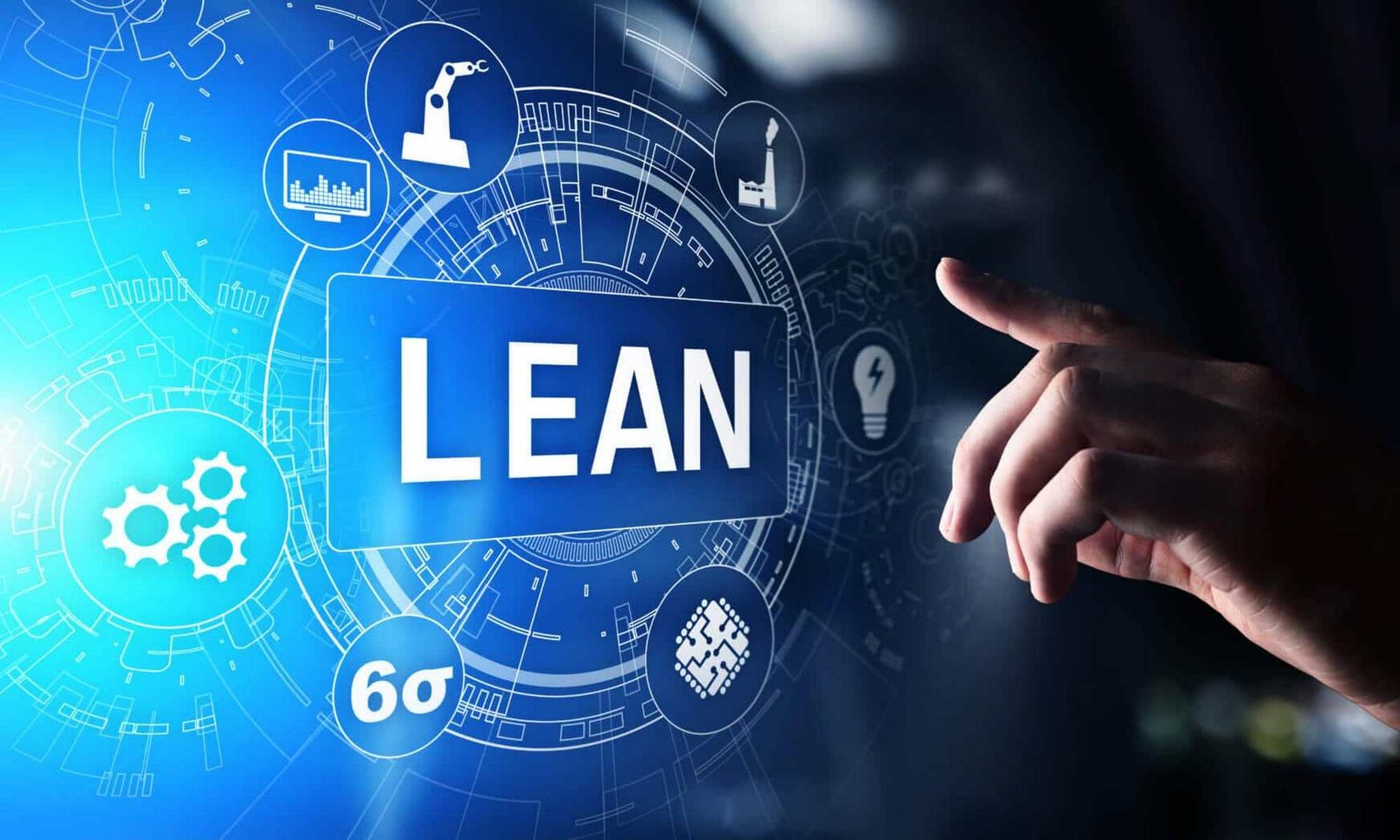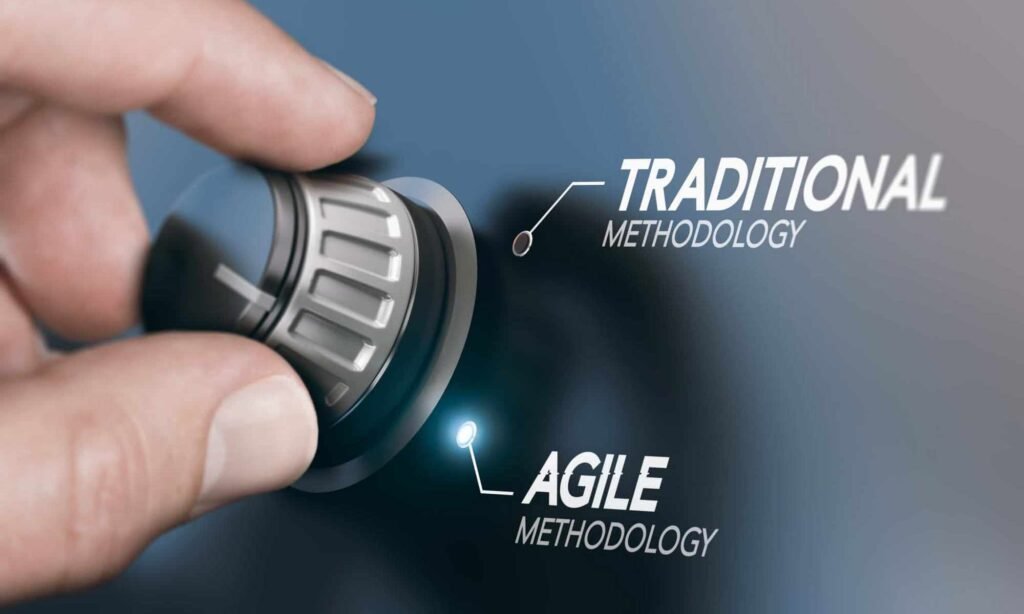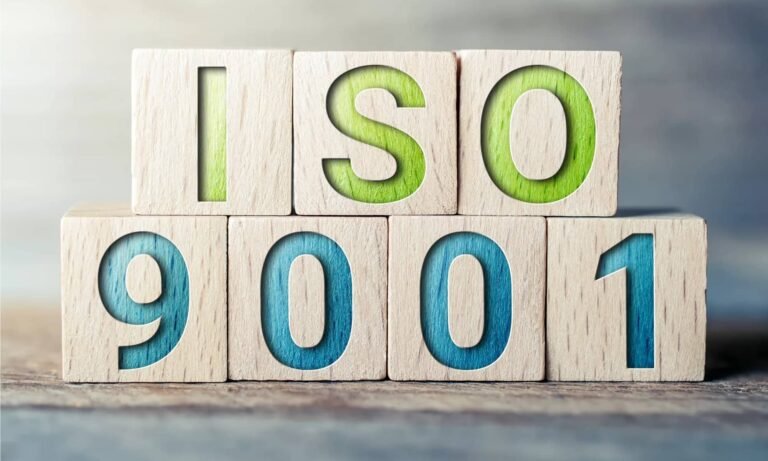Lean management maximizes customer value by minimizing waste and improving operational effectiveness. Built on principles of efficiency, streamlined processes, and productivity, it originated in the Toyota Production System (TPS) and has since expanded into sectors such as healthcare, finance, software, retail, and education. Its core focus is the removal of non‑value‑adding activities – overproduction, delays, excess inventory, defects, and unnecessary motion – to free resources for customer‑focused work and strengthen overall performance.
Lean vs Agile
Lean and Agile represent two distinct yet complementary methodologies that help businesses optimize operations and respond effectively to evolving market demands.
- Lean (manufacturing) focuses on eliminating waste, streamlining processes, and optimizing flow to maximize customer value. It emphasizes efficiency, resource minimization, and continuous improvement to enhance productivity while reducing unnecessary costs.
- Agile, on the other hand, prioritizes flexibility, adaptability, and iterative development, allowing businesses to respond quickly to changing customer needs and market conditions.
By combining Lean and Agile, organizations create a responsive, efficient, and customer-centric approach. This integration improves operational effectiveness, accelerates delivery cycles, and maintains a competitive advantage in dynamic industries.
Documents / Working Templates
Structured improvement efforts align priorities, surface issues early and drive effective, scalable solutions that strengthen performance and support sustainable operational practices.
The documents and templates in My Publications are part of Ninja Services trainings, helping participants apply Business Excellence initiatives effectively and secure lasting improvements.
The KAIZEN Philosophy: Continuous Improvement
KAIZEN, or continuous improvement, is central to lean management and empowers employees to identify inefficiencies and propose practical solutions. The KAIZEN philosophy, which originated in Japan, epitomizes the concept of continuous improvement. The term “KAIZEN” translates to “change for the better” or “improvement,” signifying the gradual and consistent enhancements in an organization’s processes, productivity, and overall performance. Rooted in post-World War II efforts to revitalize Japan’s economy, KAIZEN emphasizes the collective input of all employees, ensuring that every level of an organization plays a vital role in fostering improvement.
At its core, KAIZEN is built on a few key principles. It assumes that every employee, regardless of role, can contribute ideas that improve processes, fostering ownership and engagement. Instead of dramatic changes, KAIZEN emphasizes small, incremental improvements that are easier to implement, sustain and build upon over time. This steady approach helps organizations maintain momentum without disrupting daily operations.
In practice, KAIZEN can take the form of regular improvement meetings – focused KAIZEN events – or brief daily huddles where teams share observations and propose refinements. These practices increase efficiency, reduce waste and strengthen teamwork. By nurturing a culture of continuous improvement, organizations enhance performance and reinforce their competitive edge. Over time, this mindset becomes embedded in everyday behavior, shaping a more agile and resilient organization.
Six Sigma: Reducing Variation for Quality Excellence
Six Sigma is a transformative methodology that seeks to improve the quality of processes by identifying and removing the causes of defects while minimizing process variation. Developed by Motorola in the 1980s, Six Sigma has since become a vital component in various industries, often utilized in tandem with lean management principles. This synergy helps organizations streamline operations, reduce waste, and enhance customer satisfaction.
At the core of Six Sigma is the DMAIC framework, which stands for Define, Measure, Analyze, Improve and Control. This structured approach allows teams to tackle quality issues methodically. In the Measure phase, relevant data is collected to quantify the problem, followed by the Analyze stage, where the data is evaluated to identify root causes of variation. During the Improve phase, targeted solutions are implemented, and the Control phase ensures that improvements are sustained over time through consistent, ongoing monitoring.
Implementing Six Sigma projects can have profound implications for business excellence. By focusing on reducing variation, organizations can significantly enhance operational efficiency, ensuring that processes remain consistent and predictable. This level of quality control directly correlates with customer satisfaction since it fosters dependable and high-quality products or services. Furthermore, as businesses continue to embrace the principles of Six Sigma, they often experience cost reductions and increased profitability, which are critical indicators of operational success in a competitive market.
Integrating it all for Business Excellence
Organizations striving for Business Excellence can significantly benefit from the synergistic integration of lean management, KAIZEN and Six Sigma methodologies. Each of these approaches contributes unique principles and tools, allowing businesses to streamline processes, enhance quality, and promote a culture of continuous improvement. By adopting an integrated strategy, companies can create a robust framework that addresses inefficiencies while fostering an environment where employees feel empowered to contribute to operational excellence.
Lean management focuses on eliminating waste and enhancing value through efficient operational processes. When combined with KAIZEN, a philosophy centered on continuous improvement, organizations can cultivate an ongoing commitment to making incremental changes that lead to substantive improvements over time. Meanwhile, Six Sigma employs data-driven techniques and tools to reduce variability and defects, resulting in enhanced quality. Together, these methodologies create a comprehensive toolkit for achieving sustained success.
Several organizations have successfully implemented an integrated approach, resulting in remarkable transformations. For instance, a well-known automotive manufacturer combined lean management principles with Six Sigma techniques, which led to reduced production times and improved product quality. This synergy not only increased customer satisfaction but also bolstered employee morale as they witnessed the positive impacts of their contributions.
For businesses looking to embark on this journey toward excellence, utilizing a structured framework can be beneficial. Start by assessing the current state of operations and identifying areas in need of improvement. Establish cross-functional teams that engage in collaborative problem-solving using lean and Six Sigma tools. Encourage a culture of KAIZEN by empowering employees at all levels to share ideas for improvement. Continuous training and communication are essential to ensure everyone involved understands the methodologies and their roles within these processes. By leveraging the strengths of lean management, KAIZEN and Six Sigma, companies can achieve a sustainable approach to operational efficiency and long-term success.
Ninja Services
Pragmatic, professional engagement rooted in global experience – Ninja Services to navigate complexity, optimize operations and generate results.
Eric’s Background includes well-developed, solid Core Competencies and he offers tailor-made solutions for both temporary assignments and permanent roles and is available for global travel on a flexible basis.
Contact Eric today for effective support in navigating challenges and driving success through Value Creation.
What’s More
The posts in My Blog feature reflective, story-driven pieces rooted in personal and societal insights.
The topics in My Interests explore abstract, philosophical ideas and their cultural and societal impact.
👁️ 6,672 Views




















